‘If he wins, they’ll implement a Christian version of sharia law’: The community divided by prayers of high school football coach
US Supreme Court set to make another ruling with huge reverberations, writes Andrew Buncombe in Bremerton

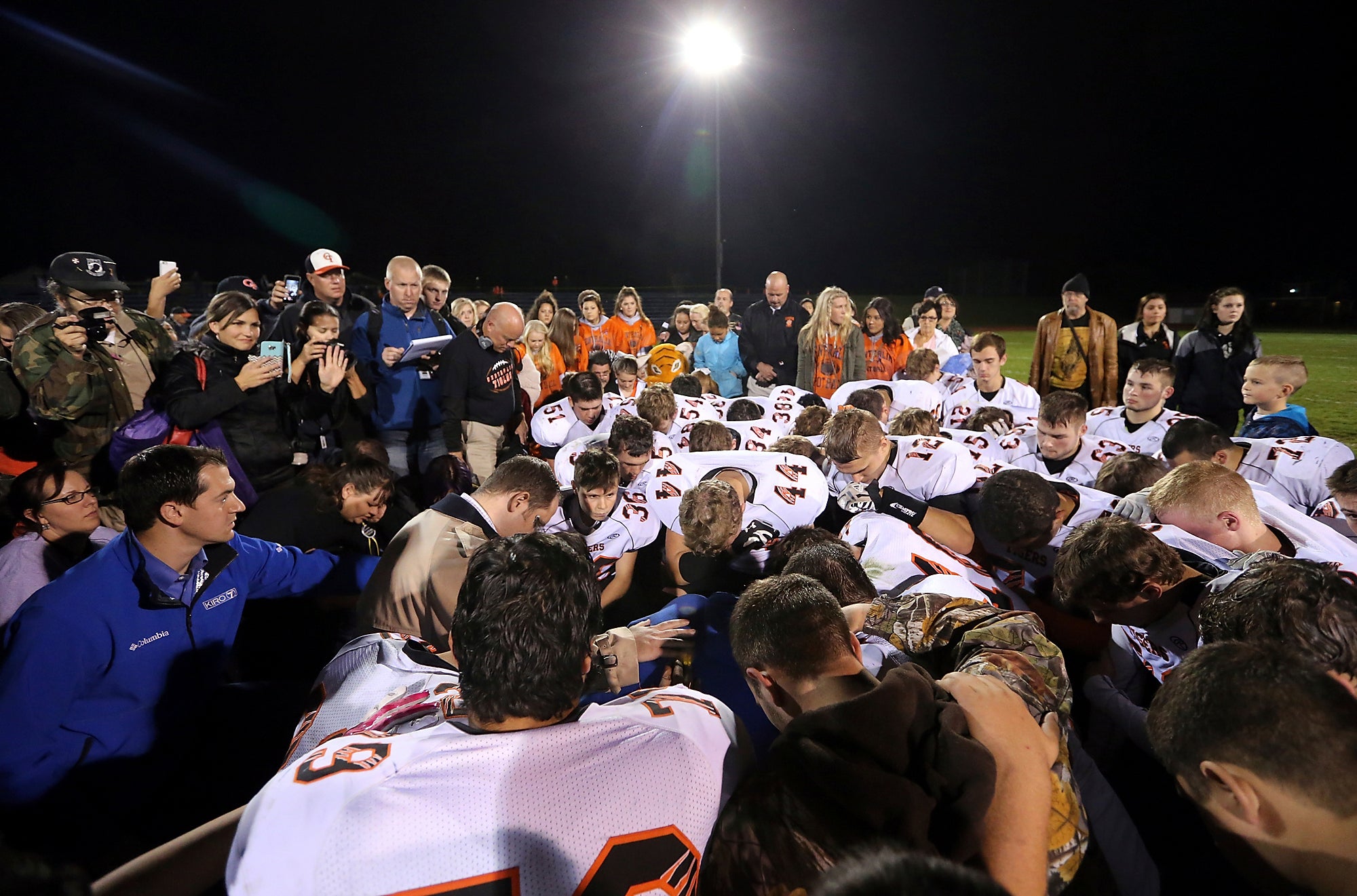
There is much regarding the case of coach Joe Kennedy about which the people of Bremerton disagree.
They do not concur as to when he actually starting praying with the players of the Bremerton High School football team. There is no consensus whether those prayers started as a “private act”, which became public, or if he had always said them in the locker team before “The Knights” took to the field.
People differ on whether some of the students may have felt compelled or pressured to pray along, given that Kennedy held – as any coach does – a position of influence and authority. Had he breached constitutional rules about the separation of government and religion?
And as the issue has wound its way from the touchlines of a sports field in the greater Seattle region to the justices of the now-distinctly conservative US Supreme Court, there are differences as to whether the religious freedoms of the 53-year-old coach himself were trampled on.
On one thing, however, there is a very broad agreement: that the case of the coach and his insistence of being allowed to pray on the touchlines has utterly divided this coastal community, sometimes in ways that may be hard to repair.
Paul Peterson, an engineer at the public shipyard, has known Kennedy for more than a decade and the pair would rib each other at work. Yet Peterson says he’s not spoken to him face to face for several years. (He also says Kennedy never prayed in public at the shipyyard.)
“What he did was wrong,” says Peterson, 53, a father-of-five, one of whom was briefly coached by Kennedy.
“If he wins the case … they will return prayer in school. They’re going to implement a Christian version of Sharia law.”
Yet, another parent with a child at the school, Nicola Pedersen, says Kennedy had every right to pray and that firing him was “ridiculous”.
“The students didn’t complain, the students were praying. There was no problem. It shouldn’t have been a problem,” she says, parked outside the high school waiting to pick up her teenage son.
“And if kindergarten teachers can put up posters about the LGBTQ community, then a football coach should have the right to pray.”

Kennedy, who says he had a difficult, troubled background, and spent 20 years in the Marines, was hired by the high school to be an assistant coach in 2008. By then Kennedy was a devout, born-again Christian.
He has said that while deciding on whether to take the job, he happened upon a film from 2006, Facing the Giants, directed by and staring Alex Kendrick, as a high school football coach who helps end its losing streak by praying before the games. He decided that would be his example.
He has said that started as a “private” moment, often held at the half-way, or 50- yard line, on the American football field and sometimes students decided to join him.
This appeared to proceed for a number of years without it really coming to the attention of the authorities. Yet when the matter did become public – reports suggest the coach of an opposing team praised the school’s principal for permitting the post-game prayers – officials sought to intervene.
Initially, there appeared to be a compromise in which the coach would limit his prayers. But when that fell through, Kennedy alerted the media and invited them to watch him and the students pray at the next game, the October 2015 image of him kneeling on the ground, surrounded by his players, those from the opposing team, as well as members of the public, making headlines across the nation.
The next month, after Kennedy held another post-game, prayer, the Bremerton School District placed him on administrative leave. He was not rehired.
Kennedy, whose lawyers said they had told him not to address the media any further until after the case is settled, has said he simply wants his job back, even though observers point out he has sold his home, given up the shipyard job and moved to Florida two years ago.
Meanwhile, for religious conservatives, the suspension of Kennedy turned the coach into a cause around which to rally.
The year after his suspension, Kennedy attended an election campaign event held by Donald Trump, where the Republican candidate talked of his case and asked Kennedy to stand up and identify himself to the audience.
“They put me on suspension and then at the end of the year, they gave me an adverse write-up of how well I did my job,” Kennedy told Trump.
Trump replied: “It’s absolutely outrageous. I think it’s outrageous. I think it’s very, very sad and outrageous.”
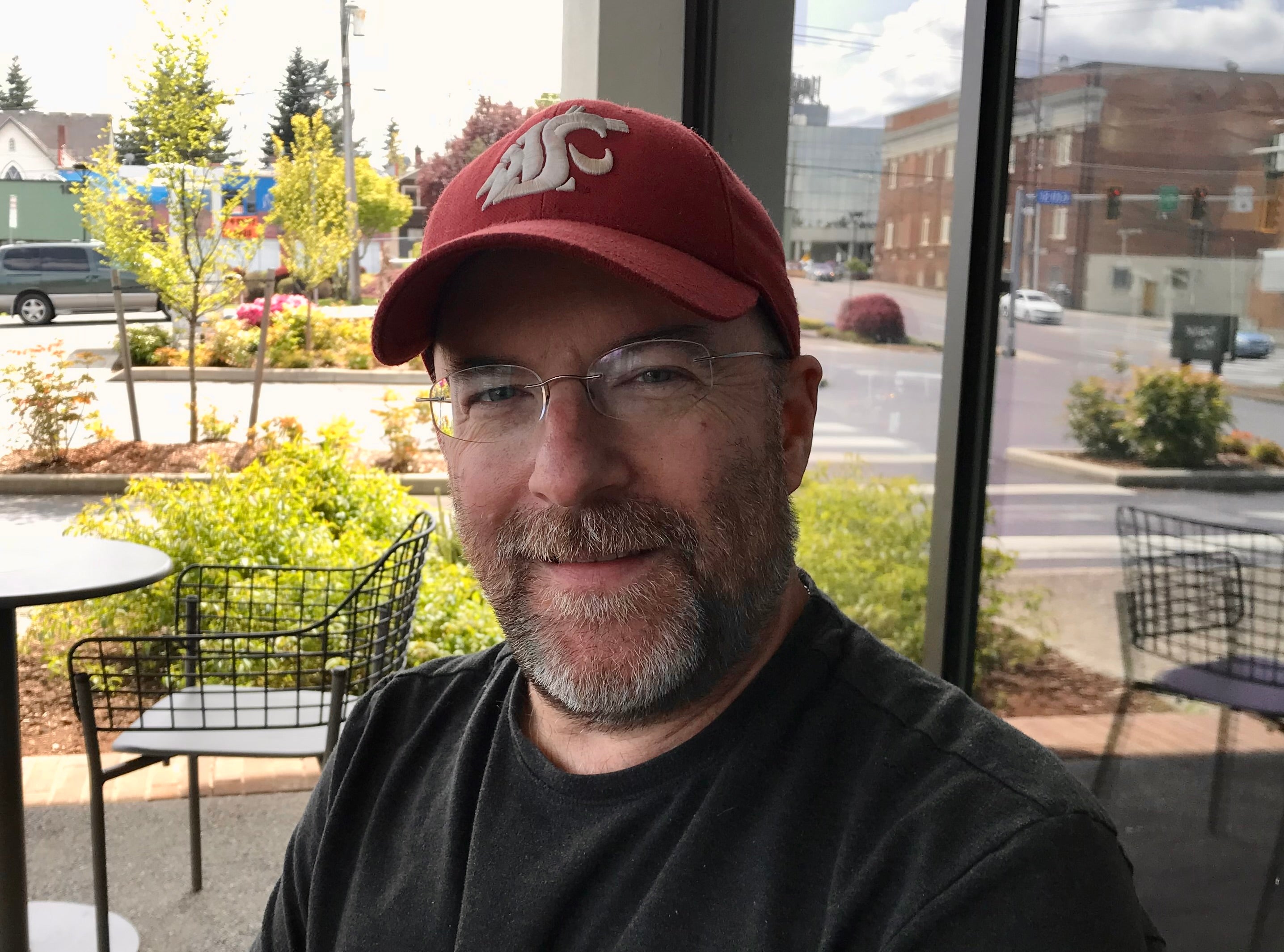
Kennedy sued the Bremerton School District, saying that his rights had been trampled on. Yet the court ruled against him, as did an appeals court in the Ninth Circuit, in San Francisco, where judge Milan Smith accused Kennedy of orchestrating a “deceitful narrative”.
While the US Supreme Court had previously declined to take the case, justices Samuel Alito, Clarence Thomas, Neil Gorsuch and Brett Kavanaugh called the 9th Circuit’s reasoning “troubling”. Under the 9th’s ruling, “public school teachers and coaches may be fired if they engage in any expression that the school does not like while they are on duty”.
This spring, the case made it before the nation’s top court, where lawyers for Kennedy, backed by a group called the First Liberty Institute, argued his constitutional rights of freedom of expression, and religious liberty, had been abused. They said he wanted his job back. A report in the New York Times said the court leant “towards the coach” during oral arguments that were held in April.
Lawyer Paul Clement told the justices hearing Kennedy v Bremerton School District, that the coach’s 0-yard line prayers were “private speech” protected by the First Amendment. He said it was similar to a player crossing himself or herself after scoring.
Attorneys for the school district, which is being supported by a different activist group, Americans United for Separation of Church and State (AU), disagreed.
“His prayer practice wrested control from the district over the district’s own events, interfered with students’ religious freedom and subjected the district to substantial litigation risks,” they argued.
AU president and CEO Rachel Laser claims Kennedy has been portraying himself as the “little guy” being bullied by the school. Yet, she says he is the one forcing his religious views on others.
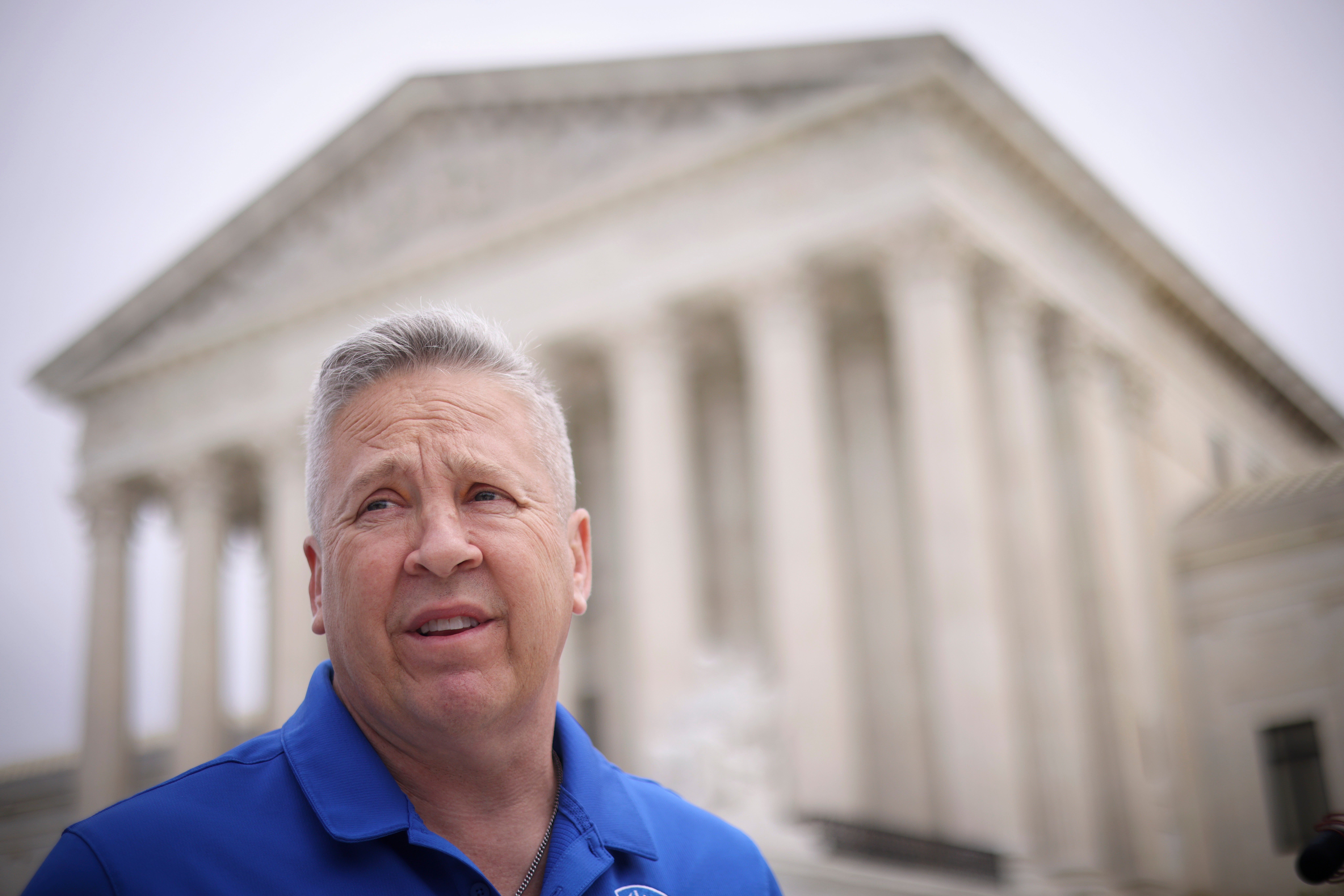
She tells The Independent as the coach on a sports team, and whose job involved not only mentoring but team selection and possibly letters in support of going to college, he had enormous influence “when you’re the public school coach, and you’re praying at the time and place where the team gathers after a game”.
“When the coach frayed at the 50-yard line once the students had gone into the locker room the school didn’t have any problem with it,” she says, speaking from Washington DC.
“But when he prayed under the lights at the 50-yard line after the handshake, when the team huddle takes place that created pressure for students to join.”
Kennedy’s lawyers deny any suggestion that the former coach is trying to “make history.”
First Liberty Institute’s Hiram Sasser says Kennedy “just wants his job back”.
Sasser also rejects the claim from the parent, Peterson, who claimed a “Christian version of Sharia law” would be implemted.
“Obviously not. Our request for relief in the case is very narrow - only that xoach can pray quietly by himself for 15-30 seconds after the game. If a newcomer were to witness it, the person would assume he is tying his shoe,” he says.
He adds: “He wants to go back back to praying alone.”
In one of several slickly produced video statement posted on his lawyers’ website, Kennedy says of his motivation to take his case to the highest court: “It’s kind of twofold. The one is, you know, the Marine in me likes to fight, and after you spend 20 years defending the Constitution, it should apply to me. So that was one part of it.”
He adds: “The other part is, I would have been a hypocrite for every one of these guys that I coached over the years. I mean, it became uncomfortable and ultimately cost me everything. But it was the right thing to do. And I always practice what I preach and I try to lead by example.”
The case is being closely watched and comes as the top court, which has a 6-3 conservative majority, already appears set to disrupt a piece of settled law, namely a woman’s right to choose a legal abortion, as guaranteed by 1973’s Roe v Wade judgment. A decision is expected later this summer.
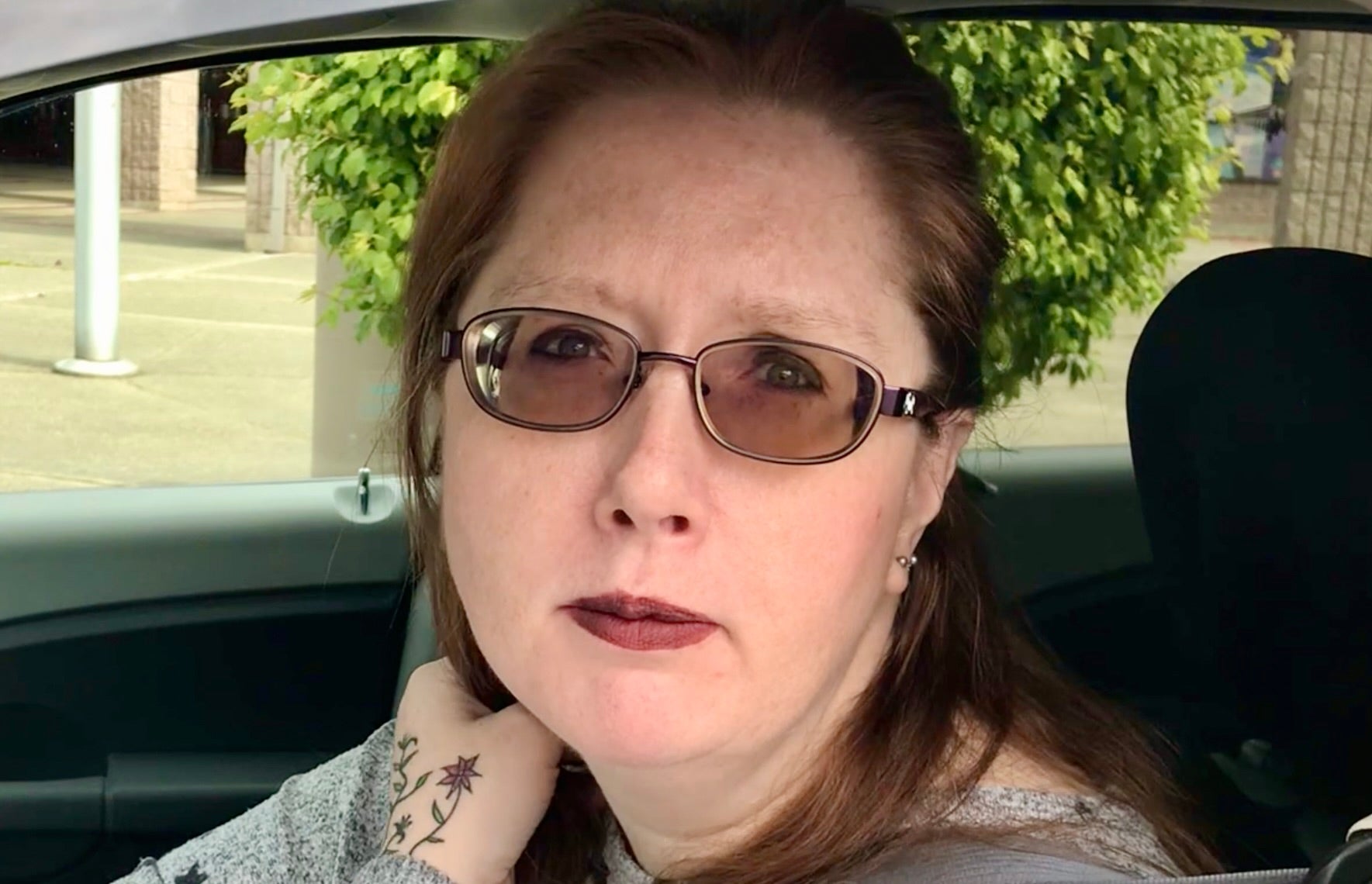
Many associated with the Bremerton case believe the court could well rule in Kennedy’s favour, though few think the situation would have played out as it had if the coach had not been a white man, or if he had been trying to say Muslim prayers.
“It’s a tough hill to climb, but the facts of the case, the laws of our country, and religious and non-religious Americans alike, err on the side of Bremerton School District and the students,” says Laser.
Why is it such a tough battle to win?
“We’re facing a court which has, in an unprecedented way, ruled in support not just of a religion, but of conservative Christians,” she says.
In Bremerton, many religious leaders have, perhaps surprisingly, sided with the school district, not the coach.
The Rev Gregory Reffner, a pastor at Brownsville United Methodist Church, and the Rev Kathleen Kingslight, a priest at St Paul’s Episcopal Church, were among a group of faith leaders who flew to Washington DC to speak at a press conference before the case went before the court.
Reffner tells The Independent religious freedom can only be guaranteed for everyone by keeping religion out of schools and out of government. That does not mean people have to give up their beliefs. He says Christians have been permitted to hold uniquely powerful positions in the nation.
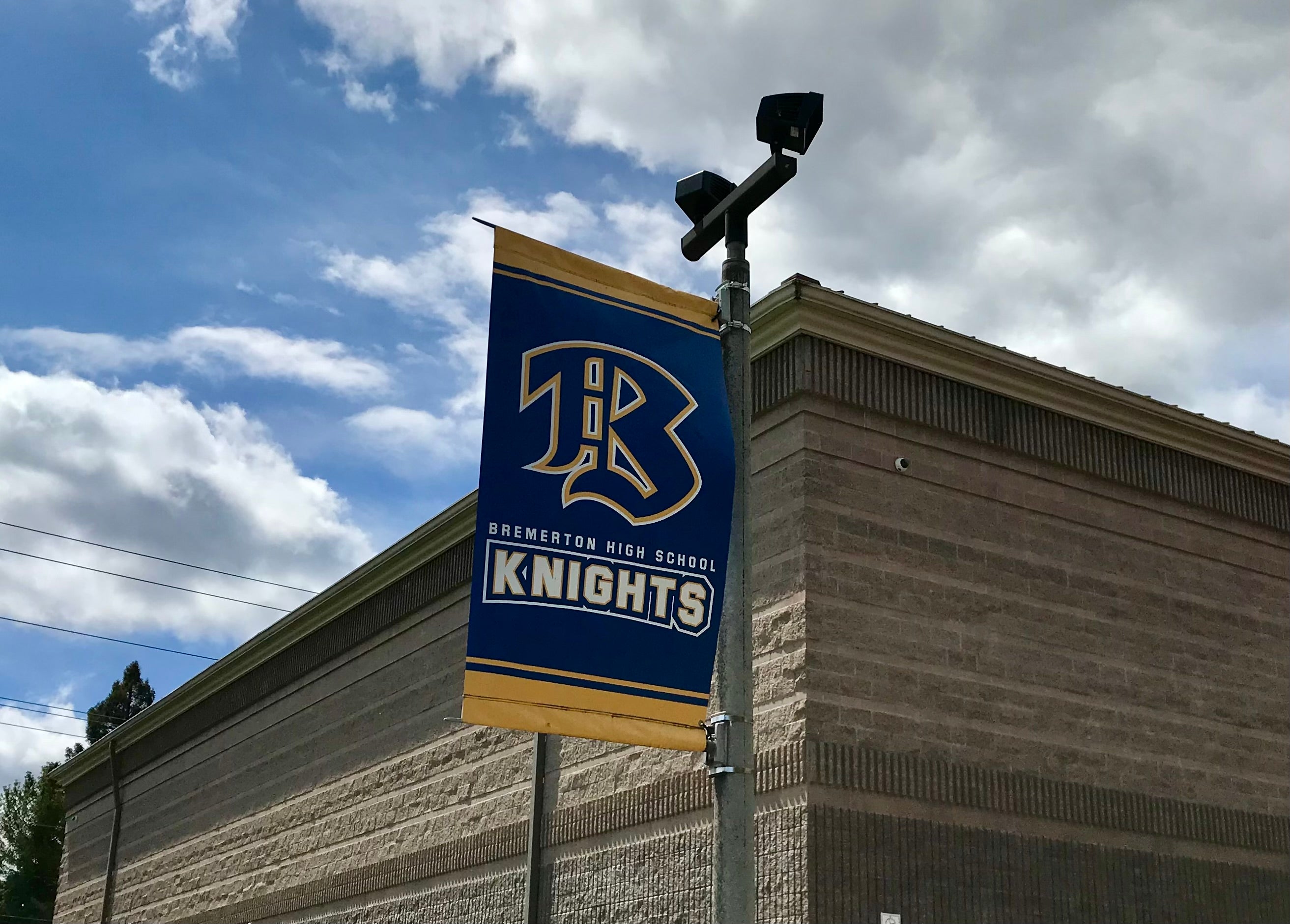
Yet, he says: “The separation of church and state actually protects religious freedom for Christians.”
Kingslight says she tries to give Kennedy the benefit of the doubt and trusts he is seeking to help the students. Yet she says: “Church and the government must stay in our separate lanes.”
Bremerton has a population of around 30,000, its economy and culture long influenced by the US naval base it contains. During the 1980s, it suffered severe economic decline, but it is seeing an up-turn, partly because of its importance as a bedroom community for Seattle, which can be reached easily by an hour-long ferry ride across the Puget Sound.
Many on both sides are surprised that the case based on events at the city’s high school are now before the Supreme Court.
“I think kids need some direction at that age, so we have our boys doing the football,” says Rob Hancock, an auto mechanic, who says he spent time in jail and wishes he’d had a mentor such as coach Kennedy.
Dan Thompson, a former naval officer, heading into a Bremerton pharmacist on a recent afternoon, says it is because education is so important to young people, that there are rules in place. He says the coach broke them.
“I don’t think that school and religion should be mixed,” he says. “If people want to do religion, they should keep it private”.
Join our commenting forum
Join thought-provoking conversations, follow other Independent readers and see their replies
Comments
Bookmark popover
Removed from bookmarks